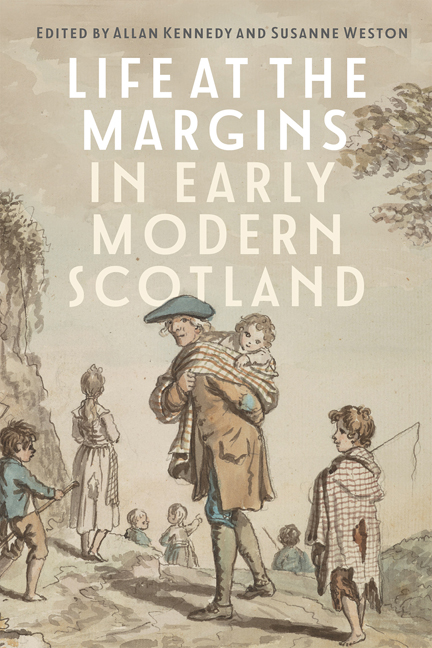7 - The Life of the Lockman
Published online by Cambridge University Press: 08 May 2024
Summary
EPITAPH
The Man who liv’d by choaking Breath,
Ly's here, at Length o’recome by Death.
The ‘lockman’, or public executioner, forms a shadowy figure in histories of early modern Scotland. He stands namelessly on the scaffold alongside the noted rebels, accused ‘witches’, and others so often written about by historians as he enacted the penalties dealt by well-studied systems and regimes. Most often, he is nameless in both primary and secondary literature alike: ‘the lockman’; ‘the hangman’; ‘the executer’. It is even easy to overlook the lockman's existence as a real person or, rather, a series of individuals whose lives were united by employment in a grisly role that their contemporaries deemed brutally undesirable, yet simultaneously imperative for maintenance of law and order. Considering their existence in the context of these contradictory social demands, this essay uses three core case studies to explore the lockman's role and his relationship to the community he served, underscoring the need to appreciate such marginal characters in order to better understand early modern Scottish society as a whole.
Named after the ‘lock’, or small measure, of meal he was conventionally entitled to from each sack in the local marketplace, the lockman was responsible for a variety of grim, arduous roles. Contemporary records note lockmen clearing latrines and recovering corpses, as well as constructing gallows, pillories, and other apparatus of public punishment. Precise duties often varied, but one common task was driving ‘uncouth beggars’ from burgh or parish bounds. At Edinburgh, Dumfries, and many other towns, lockmen were also commonly responsible for cleaning the blood of slaughtered animals spilt in marketplaces, and killing nuisance stray dogs, cats, and swine. On occasion, therefore, the role may have overlapped with that of skinner, as was far more common elsewhere in Europe. As in Germany, Scottish lockmen also occupied the pseudo-legal role of torturer, an apparent contradiction only further entrenched with time since, by the end of the eighteenth century, the position of executioner often became merged with the court office of dempster.
It was the enacting of corporal and capital punishment, however, for which the executioner was best known and by which, indeed, he continues to be defined.
- Type
- Chapter
- Information
- Life at the Margins in Early Modern Scotland , pp. 114 - 129Publisher: Boydell & BrewerPrint publication year: 2024

